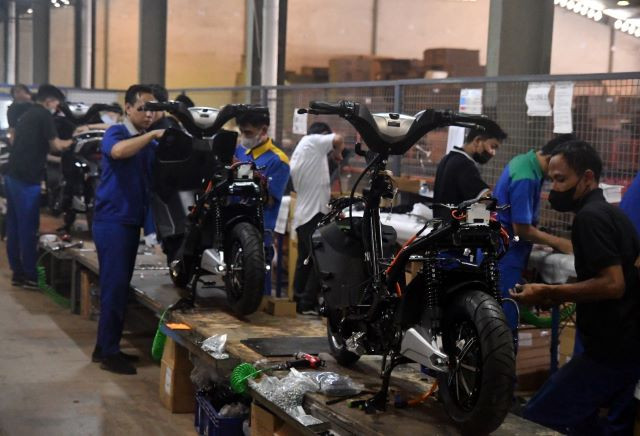Harassment still a problem on buses, trains
Tiara Wati, a 20-year-old college student, says she felt irritated after getting off a Transjakarta bus one day
Change text size
Gift Premium Articles
to Anyone

T
iara Wati, a 20-year-old college student, says she felt irritated after getting off a Transjakarta bus one day.
'I had learned how to defend myself if I was sexually harassed, but when it actually happened to me, I couldn't do or say anything,' she said in a discussion on women-friendly transportation on Saturday.
Tiara, a member of bus passengers community Biskota, said she felt somebody touch her back, causing her to feel uncomfortable.
'There was no-one behind me except a Transjakarta bus employee,' she said.
The college student said when she moved away from the officer, she did not speak, but only stared at him.
'I have imagined slapping or hitting him, but I ended up doing nothing. It irritated and confused me,' she said.
Sexual harassment and abuse, including staring, touching, groping and exhibiting sexual organs, are common on public transport.
Singer and writer Kartika Yahya said that a survey showed that one out of three women in Indonesia had been sexually harassed either in private or public spaces, including on public transport.
Kartika, who actively assists victims of sexual abuse, said many women were reluctant or confused where to report their cases, so the number of the cases exposed to the public remained small.
'I helped a woman who was sexually harassed on a Transjakarta bus by its officer. The victim, however, refused to report the case to the police,' she said.
She added that the incident had deeply affected the victim.
'The trauma can be felt for years,' she said.
According to a recent survey conducted by the Thomson Reuters Foundation, Jakarta ranked fifth on a list of the world's most dangerous transport systems for women, falling behind other Southeast Asian cities like Kuala Lumpur, Bangkok and Manila that were ranked in seventh, eighth and 10th consecutively.
Some public transport operators have tried to separate male and female passengers to minimize the problem.
PT Kereta Commuter Jabodetabek (KCJ), for example, has provided carriages dedicated only for women and PT Transportasi Jakarta, operating Transjakarta buses, has also provided special areas where only women can sit.
However, many cases still occur and law enforcement remains weak.
Astrid Malahayati Fathma, who has co-written guidance on preventing sexual harassment in public spaces and on transport, said the cases were rampant as people were either unaware or reluctant to help the victims.









